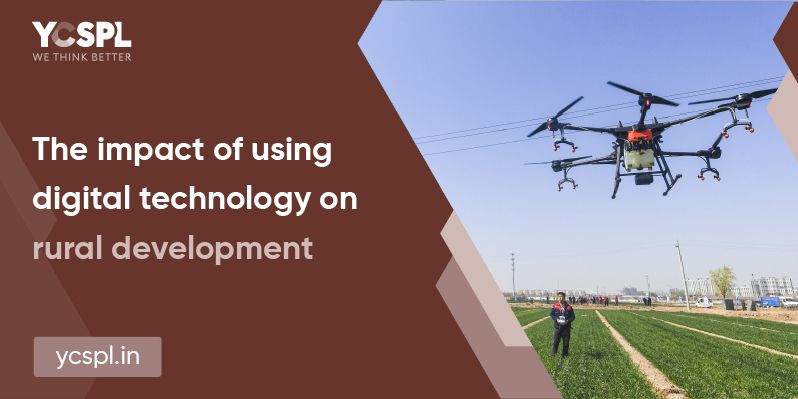
Think what you will, but rural areas have already been touched by technology and there’s no going back. Even the last villages and communities in India are now having access to basic internet and they’re opening up to a world of exposure. An interconnected world might just be everything to uplift the spirits and opportunities of the rural population. Any digital technology provides a basic ground for improved connection with the rest of the regions and prevents isolation or restriction in terms of knowledge.
With the advent of high-speed internet and lowered subscription costs, it has become easier for people to stay connected like never before. For any community to progress, it is important that they’re showered with proper exposure to diverse cultures and people who lead a different way of life than oneself.
Only when the social standings of a rural region improve, the overall area will benefit both in terms of monetary compensation and structural developments. It can also help people irrespective of their age, race, caste, gender, sex, or sexuality with a platform for expression that will help them personally fight loneliness or monotonous living.
Digital services do not just refer to a mobile phone with internet or computers. But rather any resource that will help with a data-first way of approach. For example, even the structural planning of any new infrastructure can simply be done by the integration of digital tools or applications like GIS or drone technologies. All these will help rural areas have increased overall access to diverse on-field opportunities.
Since agriculture is the key occupation that is pursued by people belonging to rural areas, there can also be improved access to a lot of functional utilities that will help strengthen the whole sector. Improved quantity of produce, effective crop monitoring, reducing any supply wastages, and data-informed crop rotation techniques will all help in better overall agricultural and revenue prospects.
The one major thing that distinguishes the people of rural areas from the city dwellers is their general mindset and perception of things. People from the city background are generally easygoing. They have well adapted to neutral environments where everyone belongs together despite their differences. But the limited exposure in rural regions restricts them from seeing things from other angles.
With digitization in the books, they’ll have unlimited exposure and a lot of insights into how people lead their life in regions that are different from their own. This will collectively drive them towards creating a space that is one and equal for all. Slowly of course, but indefinitely.
With prospective digitization, rural dwellers can find their customers from across the world just by generating the right content or by offering their services in a much more accessible manner. For example, the agricultural supply chain is not standard and there are a lot of middlemen who are meddling in the whole process. But with any digital technology at their disposal, farmers will know more about the real-time prices of their products around and can even curate a direct-to-consumer eCommerce model for better margins.

Rural areas are well-known for their unique cultures and all the little things that make them a unit unlike the rest of the world. With digitization, there will be more room for increased exposure and people can find a lot of business opportunities along the way. Any region with basic internet facilities and good knowledge of hospitality can host people from around the world. They can immerse in their diverse cultural activities thereby strengthening the rural economy and also deriving a lot of attention along the way. Nomadic working lifestyles are already being promoted where there is an open call for Work From Home employees to go on staycations to remote villages that are cut off from the rest of the world.
We live in an internet era where it is quickly becoming one of the basic commodities like clean air or fresh water. To open up rural areas to a world of opportunities, it is important that we first provide people with access to connectivity like never before.
There should be universal access to high-speed broadband connectivity just like the ones available in cities or towns
It’s one thing to install a computer station in a rural setting and it is a whole other thing to actually also appoint resources who will be able to teach the general public everything they can do. Automation is rapidly wiping out a lot of labor-intensive processes and the general public should be made ready to adapt to the consequences by mastering these technologies beforehand.
Governmental interference is always a crucial factor in effective any drastic change to realize the true impact of using digital technologies. Any rural development plan should fundamentally involve digitization as a core consideration.
At YCSPL, we have been closely associated with both governmental and private organizations in rural development projects where digitization is one of the key metrics of consideration.
Change becomes the most dynamic, powerful source of progress you have

